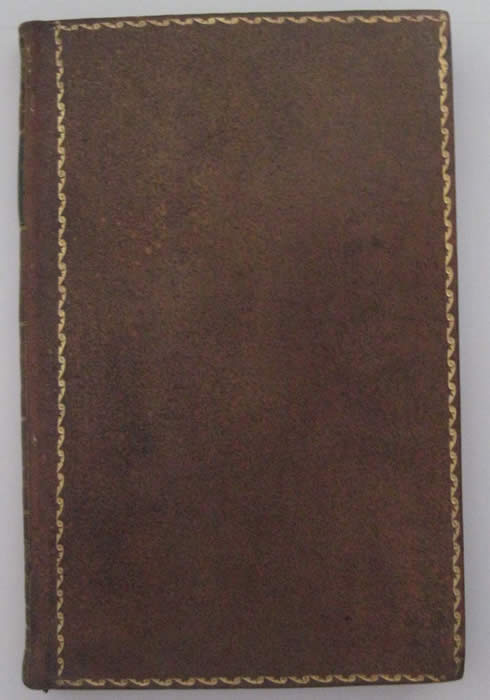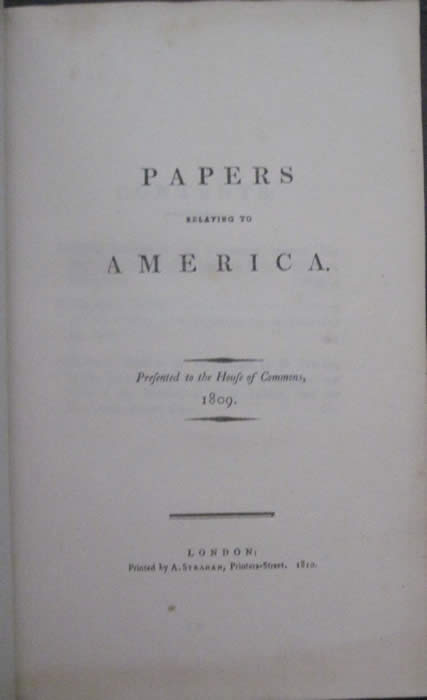
WAR OF 1812 |
|
|---|---|
 |
|
 |
 |
(LEOPARD-CHESAPEAKE AFFAIR -- WAR OF 1812) GREAT BRITAIN. FOREIGN OFFICE. PAPERS RELATING TO AMERICA. PRESENTED TO THE HOUSE OF COMMONS, 1809.
London: A. Strahan, 1810. 8vo. Contemporary full sprinkled calf. viii, 178, (4) pages. First edition. [Howes, p-60].
On June 22, 1807, the United States frigate Chesapeake cleared Norfolk, Virginia area waters for the Mediterranean to relieve the USS Constitution as flagship of the European station. In command was Captain James Barron, who had been the senior officer aboard only one day. Catching sight of the Chesapeake, HMS Leonard -- a British vessel standing off the coast -- weighed anchor and followed her. The Leopard ordered the Chesapeake to stand to in order to search her for deserters from British ships and when the Chesapeake refused, the Leopard opened fire. The Chesapeake was not prepared for combat, being both under prepared and under-strength and after fifteen minutes three of her crew were dead and eighteen wounded. Barron offered surrender which was refused and Salisbury Pryce Humphreys commanding Leopard sent across a boat, removing four men who were tried a deserters.
The incident inflamed public opinion against the British, leading President Thomas Jefferson to comment "never since the battle of Lexington have I seen this country in such a state of exasperation." He closed US territorial waters to British warships, demanded payment for damages, and requested an end to British efforts to search US ships for deserters. The British would ultimately return three of the sailors who were American born and paid reparations for the damage to the Chesapeake. The clash between the two vessels raised tensions between Britain and America and formed part of the build-up to the War of 1812. This period is covered by the papers collected here -- the official British version presented to Parliament -- written by George Canning, as Foreign Secretary; William Pinkney, American Minister Plenipotentiary in 1808; Thomas Erskine Lord Chancellor; Robert Smith, and others. The contents are broken down into three parts: I. "Papers relating to the Encounter between His Majesty's Ship Leopard, and the American Frigate, Chesapeake"; II. "Correspondence between Mr. Secretary Canning and Mr. Pinckney, from September 23, to November 28, 1808"; and III. "Instructions to the Honourable D.M. Erskine, by Mr. Secretary Canning; and the Correspondence between the Honourable D.M. Erskine, and the Honourable Robert Smith." Very good.
SOLD